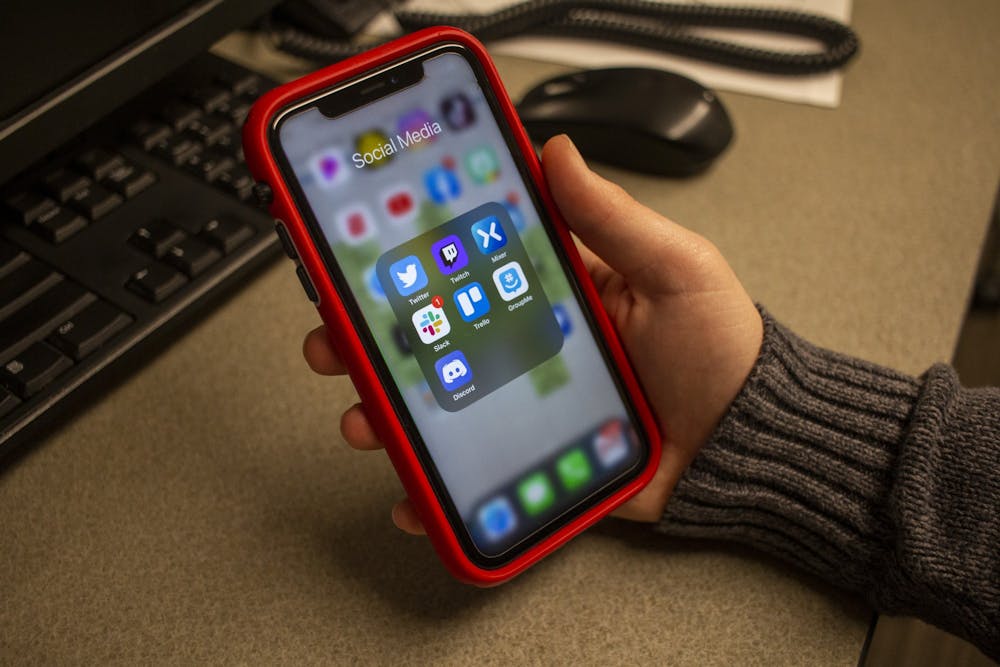Even if you’ve never been arrested, the state police might already know your face.
The New York Times reported on Jan. 18 that sophisticated facial recognition technology from Clearview AI, a small and secretive software company that has largely avoided public scrutiny, is used by hundreds of law enforcement agencies across the country. The Indiana State Police was the company's first paying customer, the report said.
Facial recognition technology is dangerous, and we should call upon our elected officials to regulate how it can be used in law enforcement and otherwise. Our individual safety and the existence of public anonymity depend on it.
Georgetown Law’s Center on Privacy and Technology found that approximately half of all American adults in 2016 were documented in at least one facial recognition database used by law enforcement, even if they hadn't been previously arrested by law enforcement.
That was before Clearview AI.
Founded in 2017, Clearview AI allows users to snap a picture of someone and bring up personal data, ranging from pictures of the person to their employment history to even their home address, by scouring a slew of various websites containing public personal information.
The scale is massive. The company operates with a database of an astounding four billion photos, compared to the FBI’s 641 million.
Speaking to the New York Times, Clearview’s cofounder Richard Schwartz called Clearview a “mission-driven organization that’s helping law enforcement protect children and enhance the safety of communities across the country.”
In reality, this technology will put more people closer to harm’s way.
Facial recognition has been used for nearly two decades by law enforcement such as the Pinellas County, Florida, Police Department, according to the New York Times. The same technology is also used to tag people in pictures on social media, board planes or attend concerts.
Increased prevalence of this technology, while perhaps convenient, poses a real threat to our individual privacy and could lead to increased instances of racial profiling in law enforcement and education. According to a study by the M.I.T. Media Lab, facial recognition for women with darker skin has an error rate around 35% compared to just 1% for white men. With this flawed software, there are only more opportunities for racial profiling and unjust law enforcement.
For now, the New York Times reported, Clearview’s software is only available for law enforcement agencies and security firms to use. However, investors in the program predict it will be made readily available to the public in the near future.
Google CEO Eric Schmidt said at a 2017 technology conference that facial recognition is the one technology that Google ever withheld. The potential facial recognition has for violating privacy and endangering the public is seemingly endless.
The best way to stop this danger in its tracks will be to loudly advocate for an expansive federal privacy law to ensure the public’s safety.
“Laws have to determine what’s legal, but you can’t ban technology. Sure, that might lead to a dystopian future or something, but you can’t ban it," David Scalzo, an early investor in Clearview, told the New York Times.
Old laws can’t be expected to protect against continually advancing technology. In order to make sure law enforcement officials acts ethically and to protect Americans against private abuses, the government must keep companies like Clearview AI in check by limiting when and how facial recognition technology can be used and by whom.
A bipartisan bill was introduced by Sens. Chris Coons, D-Del., and Mike Lee, R-Utah, in November that would limit the use of facial recognition software by law enforcement agencies such as the FBI and U.S. Immigration and Customs Enforcement. The bill would require a special warrant for the use of extended facial recognition surveillance for specific individuals and provide recourse for defendants. The Senate has not voted on it yet.
While the bill is a step in the right direction, it does not go far enough. It would only apply to federal law enforcement agencies and would not require court authorization for most surveillance uses.
There’s no doubt that new technology will always provide new challenges for our society. The question we must ask is whether our elected officials are willing to place the proper protections in place to defend personal privacy, and whether we are willing to fight for those protections. The answer must be yes.
Everett Kalman (he/him) is a junior studying law and public policy. He plans on practicing immigration law in the future.






